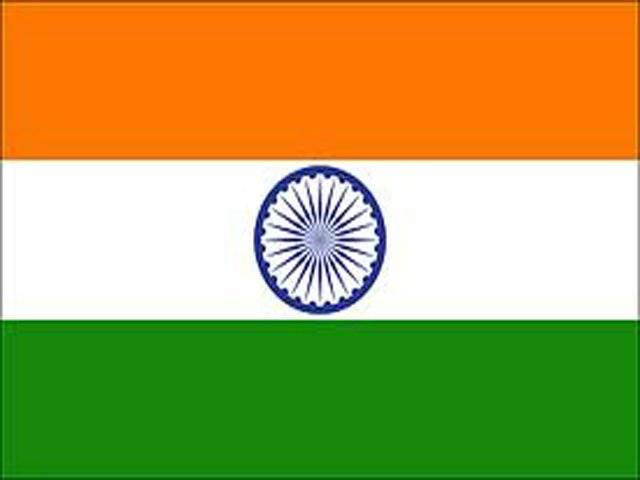NEW DELHI (Agencies) - Pakistans attitude towards tackling terrorism has 'altered, a 'concrete development that India should take note of, Indian Foreign Secretary has said. For the first time, the Indian government has admitted, that its policy of not engaging with Pakistan - post 26/11 - may have been wrong. Outgoing Indian Foreign Secretary Nirupama Rao in an interview with Karan Thapan on Devils Advocate over an Indian TV channel on Sunday said New Delhis new approach towards Pakistan is more realistic. Asked that the Indian government has now decided that it can no longer refuse talks, needs to engage with Pakistan in the hope that engagement will produce results, Rao said it is a very realistic approach in dealing problems with Pakistan. I think the decision to re-engage with Pakistan and to talk about the issues that divide us, that created a gulf between us that reduce the trust deficit as the two Prime Ministers said, is a very realistic approach in dealing problems with Pakistan. Pakistans attitude towards tackling terrorism has altered, a concrete development that India should take note of, Rao said. I think the prism through which they see this issue has definitely been altered, Rao said. She was replying to a question on whether India saw a change in Pakistans attitude towards terrorism during the recently concluded foreign secretary-level talks. Asked whether it was a positive development, Rao said it was an outcome that India must take note of. I think when they speak of the fact that non-state elements in this relationship need to be tackled, that we must look at safe havens and sanctuaries, that we must look at fake currency, we must look at all the aspects that are concerned with the business of terror, I think that is a concrete development, she said. Noting that India has had sustained dialogue with Pakistan on the 26/11 issue, the Foreign Secretary said concrete results seem to be very far off. We have not seen anything actually happening on the Mumbai trial and that is the point of great concern to us. But let me ask you a question. Does it mean that dialogue is not an option that we should pursue with Pakistan? she said. Rao said policy-making needs to be looked at in a dynamic situation. I do not think you are making policy in a laboratory. You take into account the surrounding environment. You take into account the success of a certain approach or not. Did that approach (of not talking) yield too many dividends? Well, you have to make your assessment of that, Rao said. She agreed with former Home Secretary G K Pillais assessment that the 26/11 trial has not moved an inch. Well, it depends on how you look at it. From one angle certainly it has not moved an inch. I am not denying that. There has been a very glacial pace to this whole process as far as the 26/11 trials are concerned. But let me tell you what kind of feedback we got from the Pakistanis at this round. And they spoke of the need to discuss all the serious and substantive issues between the two countries and that terrorism was at the forefront of this, Rao said. She hinted New Delhi could ban nuclear reactor purchases from countries refusing to sell sensitive nuclear technology to it after suppliers decided to tighten such trade against countries like India. Rao also said the United States, Russia and France stood by their promises to supply such technology despite last months decision by the Nuclear Supplier Group (NSG) to restrict transfer of uranium enrichment and reprocessing technology which can be used to make atomic bombs. The suppliers decision was seen as a blow to nuclear-armed India, which won a waiver from such trade restrictions in 2008, a move that ended its three-decade-long nuclear isolation. I think the latest NSG decision is not the end of the road. It is not set in stone. Let me say that, Rao said. There is a balance of interest, there is a balance of commitments, there is mutual reciprocity involved. There are leverages that we can exert from our side also, she said. When asked if the leverages meant India would blacklist unwilling countries and ban nuclear reactor purchases from them, she said: We will defend our interests to the hilt.
Sunday, May 19, 2024
Disengaging Pakistan a mistake: India

Slovak PM shooting: Suspect in detention
May 19, 2024
Flash floods kill 50 in Afghanistan
May 19, 2024
Sports & Genocide
May 18, 2024
Healing AJK
May 18, 2024
A New World Order
May 18, 2024
Tobacco Toll
May 17, 2024
Rushed Reforms
May 17, 2024
Continuing Narrative of Nakba
May 18, 2024
Teacher Struggles
May 18, 2024
No Filers out of Reach
May 18, 2024
Hoax of Inflation Coming Down
May 17, 2024
Rising Inflation
May 17, 2024
ePaper - Nawaiwaqt
Advertisement
Nawaiwaqt Group | Copyright © 2024





